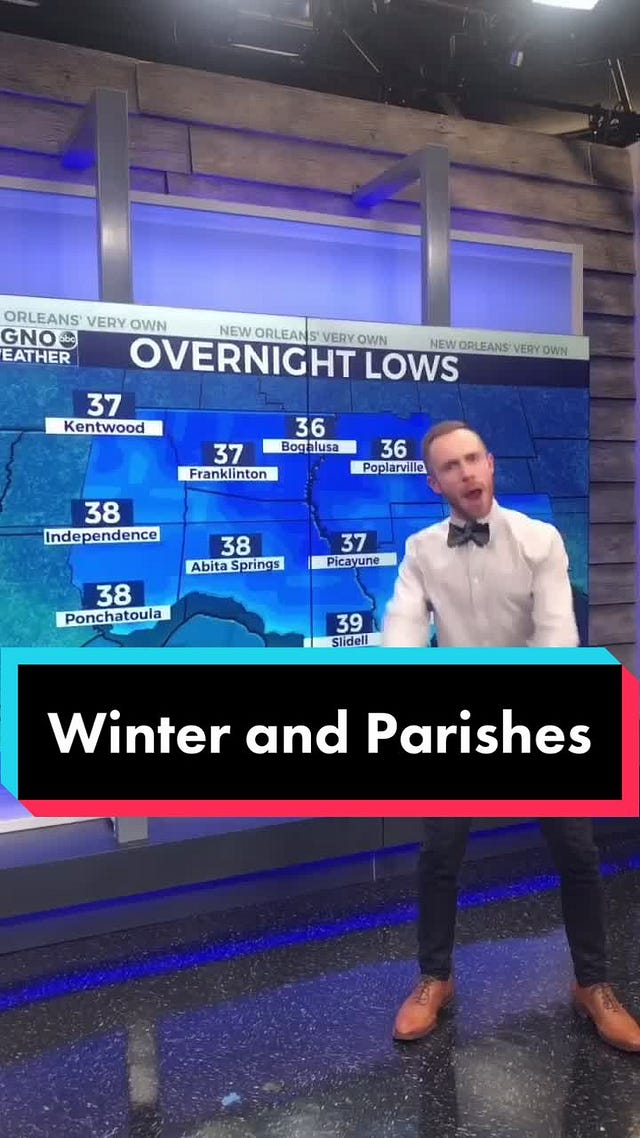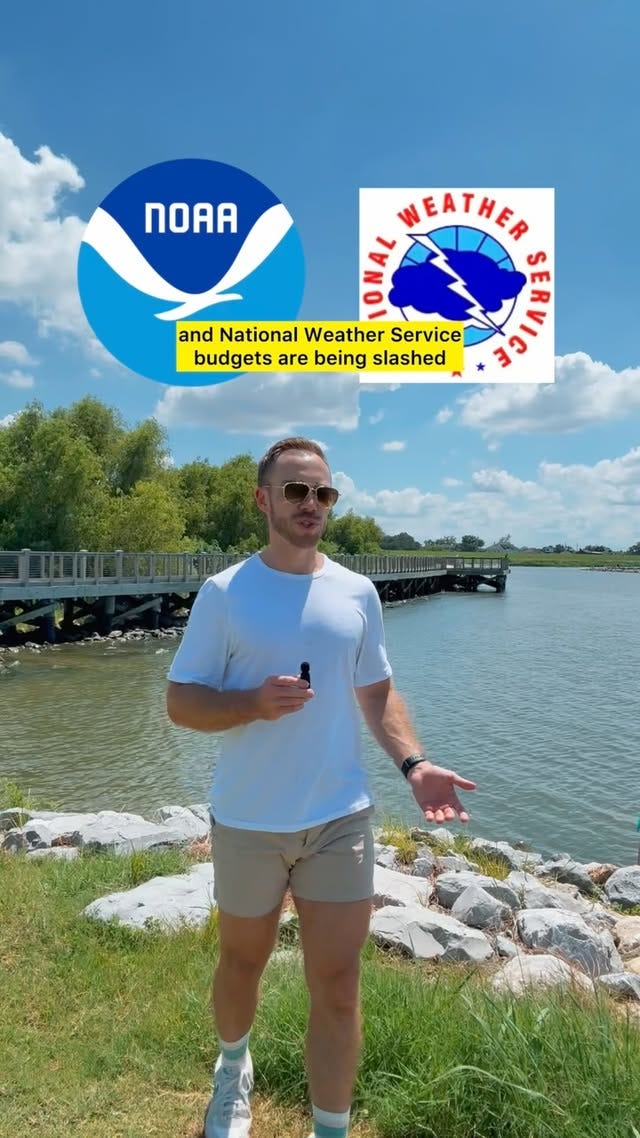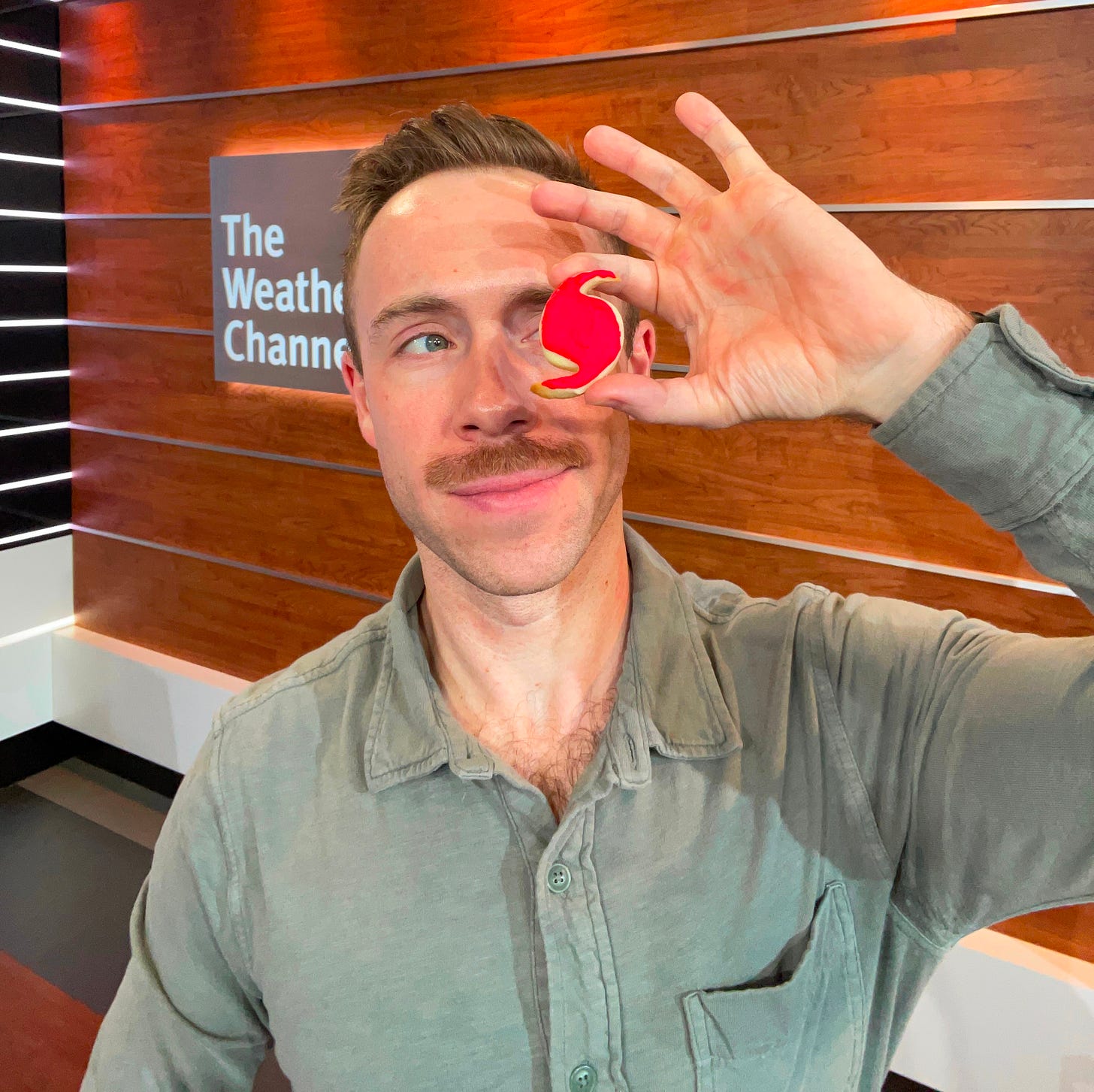Trust in the Forecast: How Scot Pilié Connects with Millions and Fights for Climate Preparedness
"The less you hear from me, the better during hurricane season."
It's an unusual mantra for someone with nearly half a million social media followers, but Scot Pilié means it. The New Orleans-based meteorologist has built one of the largest weather-focused digital platforms by knowing exactly when to speak up — and when to step back.
"Some meteorologists or content creators are inclined to dramatize storms to get more engagement," Pilié explains during our conversation. "That's very captivating. But there's no sense of trust when fake storms, or ghost storms as I call them, don't happen. No one's going to believe you the next time."
After a decade in traditional broadcast news, including a recent stint at The Weather Channel, Pilié has returned home to New Orleans where he's crafted what he calls a "Swiss army knife" approach to climate communication. Part freelance meteorologist, part nonprofit advocate, and part social media educator, "No one really knows what the heck I do," he laughs.
But millions of people know to trust him when extreme weather threatens the Gulf Coast. And increasingly, they're listening when he sounds the alarm about something else: the proposed dismantling of NOAA and the National Weather Service that could set American weather prediction back decades.
Finding a Voice in the Climate Conversation
When I ask about his communication style, Pilié recalls his humble beginnings: "I used to do Facebook lives and there'd be nobody watching. It was like my mom."
From those early days to his current reach, his approach has remained consistent. Build trust through accuracy, know your geography, and speak directly to people's concerns. "When you know their county, when you know their town, when you know the landscape — that's very helpful," he says. "People are drawn to that style of relatability meets information."
His most viral content often comes from unexpected places. "This is ridiculous, but I'll just say it: do you remember WAP, the song? I made a video that was basically winter and parishes, WAP, and it went mega viral." But Pilié is strategic about different types of content. Weather forecasts spike and disappear quickly, while his videos about NOAA budget cuts have staying power: "People will go to their search bar and type in 'NOAA budget cuts,' and then the first video is me."
 Tiktok failed to load.
Tiktok failed to load.Enable 3rd party cookies or use another browser
Forecasting the Future: What We Stand to Lose
When we turn to the proposed cuts to NOAA and the National Weather Service, Pilié's tone shifts to urgent.
"The amount of advancements that the U.S. has had in weather technology in the past 20 years has been incredible," he explains. The improvements since Hurricane Katrina have been dramatic, shrinking forecast uncertainty. "Because of NOAA and the National Weather Service, we're saving an estimated $5 billion per landfalling storm."
He points to Hurricane Rita in 2005, when Houston unnecessarily evacuated based on an inaccurate forecast: "Houston had the largest evacuation ever. One hundred-plus people died in the evacuation process. Nowadays they probably would have never evacuated Houston because they would have had a better, more accurate forecast."
The proposed fiscal year 2026 cuts would shut down close to a dozen labs across the country, including the Hurricane Research Division in South Florida. "Estimates say that you could have close to a 20 to 40% reduction in accuracy with time," Pilié warns. "Weather models are great, but you need meteorologists to manipulate the model data to get the models to be the best versions of themselves."
The politicization particularly disturbs him. He recently posted about National Weather Service job postings that require applicants to "pledge loyalty to the president's executive orders. Like, that's an actual tangible question in the questionnaire." His frustration is clear: "That should never sit well with anyone."
"I have a lot of people from both sides of the aisle that are shocked when I talk about these things. They're like, 'How is weather being made political?' The National Weather Service and NOAA should not be touched. They should be apolitical."
Building Hope Through Action
Despite the challenges, Pilié finds hope in community action. Working with a coastal restoration nonprofit in Louisiana, he's seen firsthand how social media can drive real-world impact. "So many more people because of the videos I've been doing are asking, 'When are you going out there? When can I come help?'"
"Our nonprofit just got a great donation," he shares. "And they literally said, 'We would have never known about y'all if it wasn't for social media.'"
His advice for young people entering climate and environmental communication, especially in the South, is to "curate your craft" while diversifying their expertise. "The more topics that you're knowledgeable about, the more of an asset you are to any team."
But ultimately, his message is about collective action: "Literally just one hour a month of volunteering would make the world of change if everyone did it. Going out to the swamp and planting a tree, and 10 years from now that possibly being a dozen trees, is pretty cool."
As hurricane season approaches and climate impacts intensify, Pilié continues to navigate the balance between informing without alarming, entertaining without trivializing, and advocating without alienating. "You get a lot of stuff done in the worst of circumstances sometimes," he reflects.
In a media landscape often dominated by extremes — either catastrophizing or denying climate threats — Scot Pilié has carved out a different path. One that is trusted, accessible, and unwaveringly focused on what actually helps people stay safe. Even if that sometimes means talking about WAP.






I trust only science, not trump.